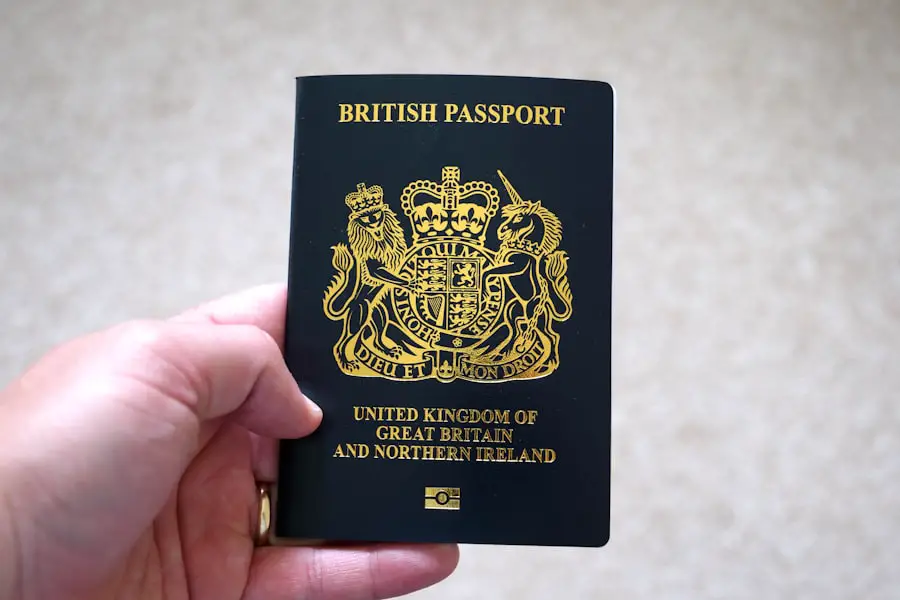The I-140 visa process is a critical step for foreign nationals seeking permanent residency in the United States through employment-based immigration. This petition, formally known as the Immigrant Petition for Alien Worker, is filed by an employer on behalf of a foreign worker. The I-140 serves to demonstrate that the worker meets the qualifications for a specific employment-based category, such as EB-1, EB-2, or EB-3.
Each of these categories has distinct eligibility requirements, often based on the worker’s skills, education, and experience. For instance, the EB-1 category is typically reserved for individuals with extraordinary abilities in their fields, while the EB-2 category may require an advanced degree or exceptional ability. Once the I-140 petition is approved by U.S.
Citizenship and Immigration Services (USCIS), it signifies that the employer has established a valid job offer and that the foreign worker meets the necessary qualifications.
This approval is a prerequisite for the next steps in the immigration process, which may include applying for an Adjustment of Status (AOS) if the individual is already in the U.S., or consular processing if they are outside the country. The I-140 petition is a pivotal moment in the immigration journey, as it lays the groundwork for obtaining a green card and ultimately achieving permanent residency.Key Takeaways
- The I-140 visa process is a crucial step in obtaining permanent residency in the US and requires careful attention to detail and documentation.
- Travel restrictions with a pending I-140 can be complex and may require careful consideration to avoid jeopardizing the application.
- Options for traveling outside the US while the I-140 is pending include obtaining advance parole or seeking a non-immigrant visa.
- Risks and considerations for international travel with a pending I-140 include potential delays or denials of the application.
- Seeking advance parole can provide temporary permission to travel internationally while the I-140 is pending, but it is important to consult an immigration attorney for guidance.
Travel Restrictions with a Pending I-140
Abandonment of I-140 Petition
This is particularly true for individuals in non-immigrant statuses that do not allow for dual intent, such as F-1 student visa holders. Departing the U.S. could jeopardize not only the pending I-140 but also any future immigration benefits tied to that application.
Additional Scrutiny at the Border
If an individual travels while their I-140 is pending and subsequently seeks to re-enter the U.S., they may face additional scrutiny at the border. Customs and Border Protection (CBP) officers have broad discretion to deny entry based on perceived intent or status issues.
Consequences of Traveling While an I-140 is Pending
This can lead to significant delays or even denial of re-entry, which can be particularly distressing for those who have invested time and resources into their immigration process. Therefore, understanding these travel restrictions is crucial for anyone navigating the complexities of a pending I-140.
Options for Traveling Outside the US

For individuals with a pending I-140 who need to travel outside the United States, there are several options to consider that may mitigate risks associated with their immigration status. One potential avenue is to apply for Advance Parole, which allows individuals to re-enter the U.S. without abandoning their pending applications. Advance Parole is particularly relevant for those who have filed for Adjustment of Status (AOS) concurrently with their I-140 petition. By obtaining this document before traveling, individuals can ensure that they maintain their eligibility for permanent residency upon their return. Another option is to explore whether it is possible to adjust their travel plans based on their current visa status. For example, individuals on H-1B or L-1 visas may have more flexibility in traveling abroad without jeopardizing their immigration status, as these visas allow for dual intent. However, it is essential to consult with an immigration attorney to understand any specific requirements or potential risks associated with re-entering the U.S. under these circumstances. Each case is unique, and careful planning can help avoid complications during international travel.
Risks and Considerations
| Category | Risks and Considerations |
|---|---|
| Financial | Market volatility, economic downturn |
| Operational | Supply chain disruptions, technology failures |
| Legal and Regulatory | Compliance issues, changes in laws |
| Reputational | Public relations crises, brand damage |
Traveling internationally while an I-140 petition is pending carries inherent risks that must be carefully weighed against personal circumstances and needs. One significant risk involves the potential abandonment of the I-140 petition itself. If an individual departs the U.S.
while their petition is still under review, USCIS may interpret this action as a withdrawal of interest in pursuing permanent residency. This could lead to a denial of the petition and complicate future immigration options. Additionally, there are considerations related to visa validity and re-entry into the U.S.
Individuals must ensure that their current visa status remains valid throughout their travels. If a visa expires while abroad or if there are changes in immigration policy during their absence, re-entry could become problematic. Furthermore, individuals should be aware of any travel bans or restrictions that may be in place due to geopolitical factors or public health concerns, which could further complicate their ability to return to the U.S.
safely and promptly.
Seeking Advance Parole
Advance Parole serves as a crucial tool for individuals with pending I-140 petitions who wish to travel outside the United States without jeopardizing their immigration status. This document allows individuals to leave and re-enter the U.S. while their Adjustment of Status application is pending, effectively providing a safety net against abandonment of their application.
To obtain Advance Parole, individuals must file Form I-131, Application for Travel Document, and provide supporting documentation that demonstrates their eligibility. It is important to note that Advance Parole does not guarantee re-entry into the U.S.; it merely allows individuals to apply for admission upon their return. Customs and Border Protection (CBP) officers at ports of entry retain discretion over whether to grant entry based on various factors, including any changes in circumstances since departure.
Therefore, individuals should be prepared to present documentation related to their pending I-140 and any other relevant immigration paperwork when seeking re-entry.
Consulting an Immigration Attorney

Given the complexities surrounding international travel with a pending I-140 petition, consulting an immigration attorney is highly advisable. An experienced attorney can provide tailored guidance based on individual circumstances and help navigate potential pitfalls associated with travel plans. They can assess specific visa statuses, advise on filing for Advance Parole, and outline any risks involved in traveling abroad.
Moreover, an attorney can assist in preparing necessary documentation and ensuring compliance with all legal requirements before departure. This proactive approach can help mitigate risks associated with abandonment of the I-140 petition or complications during re-entry into the U.S. An attorney’s expertise can also be invaluable in addressing any unexpected issues that may arise during travel or upon return.
Potential Impact on I-140 Processing
Traveling outside the United States while an I-140 petition is pending can have implications for processing times and outcomes. If an individual departs while their petition is under review without securing Advance Parole or maintaining valid non-immigrant status, USCIS may interpret this as abandonment of the application. This could lead to delays in processing or outright denial of the petition.
Additionally, if there are changes in immigration policy or regulations during an individual’s absence from the U.S., it could affect not only their pending I-140 but also future applications for permanent residency or other immigration benefits. For instance, changes in labor certification requirements or shifts in priority dates could impact eligibility criteria or processing timelines upon return. Therefore, staying informed about current immigration policies and maintaining open communication with legal counsel is essential for anyone considering international travel during this critical phase of their immigration journey.
Planning for International Travel with a Pending I-140
Effective planning is paramount for individuals with a pending I-140 who wish to travel internationally. Before making any travel arrangements, it is essential to assess one’s current visa status and understand any restrictions that may apply. This includes determining whether Advance Parole is necessary and ensuring that all required documentation is prepared well in advance of departure.
Additionally, individuals should consider potential timelines associated with both travel and immigration processing. It may be prudent to wait until after receiving approval of the I-140 petition before embarking on international travel, as this can provide greater assurance regarding immigration status upon return. If travel is unavoidable, thorough research into entry requirements and potential risks associated with re-entry should be conducted.
In conclusion, navigating international travel with a pending I-140 petition requires careful consideration of various factors, including visa status, potential risks, and available options such as Advance Parole. Consulting with an immigration attorney can provide valuable insights and help ensure compliance with all legal requirements throughout this process. By planning effectively and staying informed about current immigration policies, individuals can better manage their travel plans while safeguarding their path toward permanent residency in the United States.
If you are considering traveling outside the US while your I-140 is pending, it is important to be aware of the potential risks involved. According to a recent article on TakeTravelInfo, “5 Must-Have Waterproof Sneakers for Your Spring 2025 Travels,” having the right gear can make all the difference when embarking on international adventures. It is crucial to stay prepared and informed before making any travel plans to ensure a smooth process. Check out the article here for more tips on how to make the most of your travels while your I-140 is pending.
FAQs
Can I travel outside the US while my I-140 is pending?
Yes, you can travel outside the US while your I-140 is pending. However, you will need to obtain an advance parole document before leaving the country to ensure that you can re-enter the US while your I-140 is still pending.
What is an advance parole document?
An advance parole document is a travel document that allows certain foreign nationals to re-enter the US after traveling abroad while their immigration application is pending.
How do I apply for an advance parole document?
You can apply for an advance parole document by filing Form I-131, Application for Travel Document, with the US Citizenship and Immigration Services (USCIS). You should apply for the advance parole document before leaving the US.
What happens if I travel outside the US without an advance parole document while my I-140 is pending?
If you travel outside the US without an advance parole document while your I-140 is pending, your application may be considered abandoned, and you may not be allowed to re-enter the US. It is important to obtain an advance parole document before traveling outside the US while your I-140 is pending.
Can I travel outside the US after my I-140 is approved?
Once your I-140 is approved, you may travel outside the US using your valid visa and re-enter the US without the need for an advance parole document. However, it is important to check the specific requirements and restrictions based on your immigration status.
